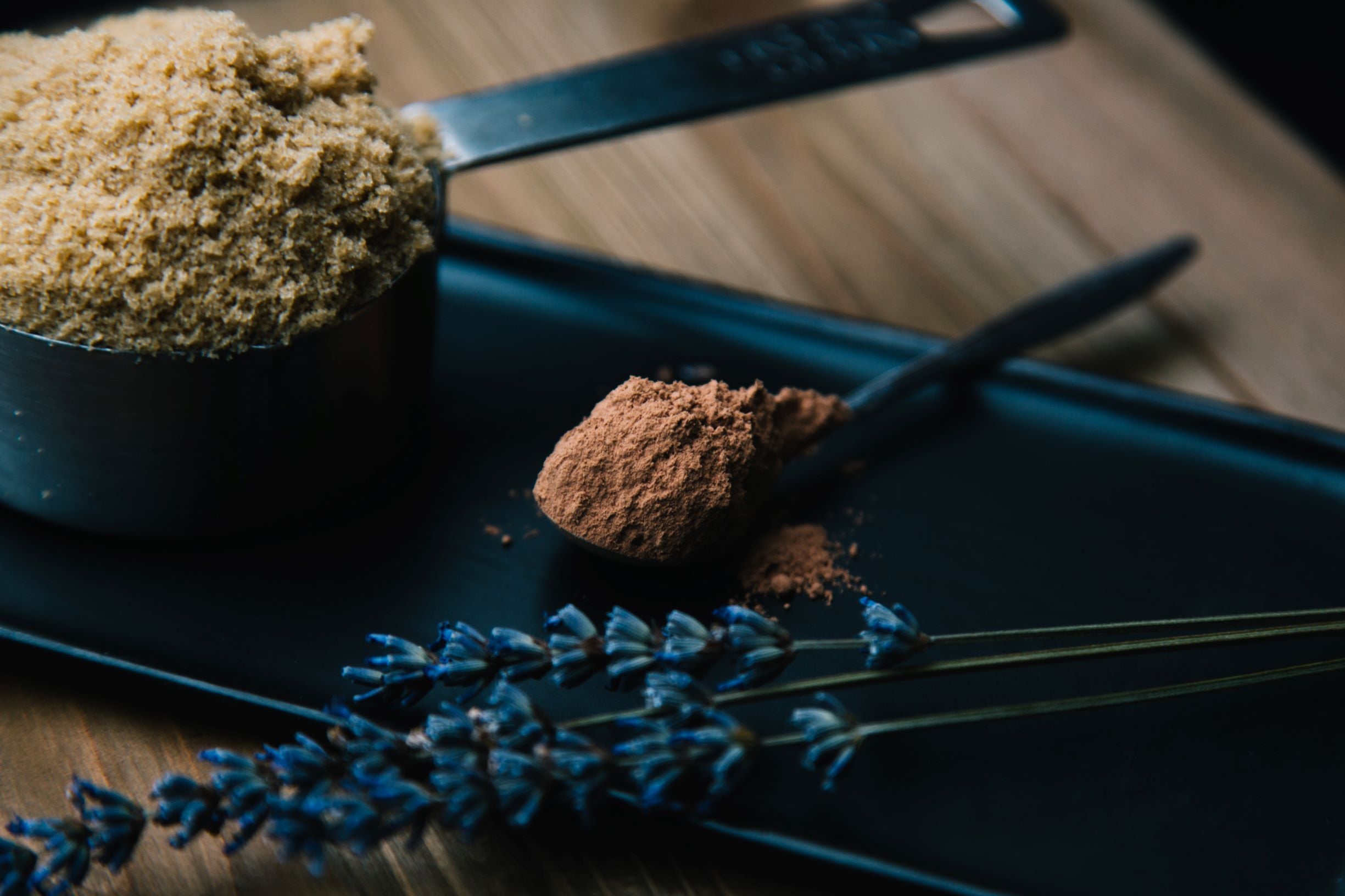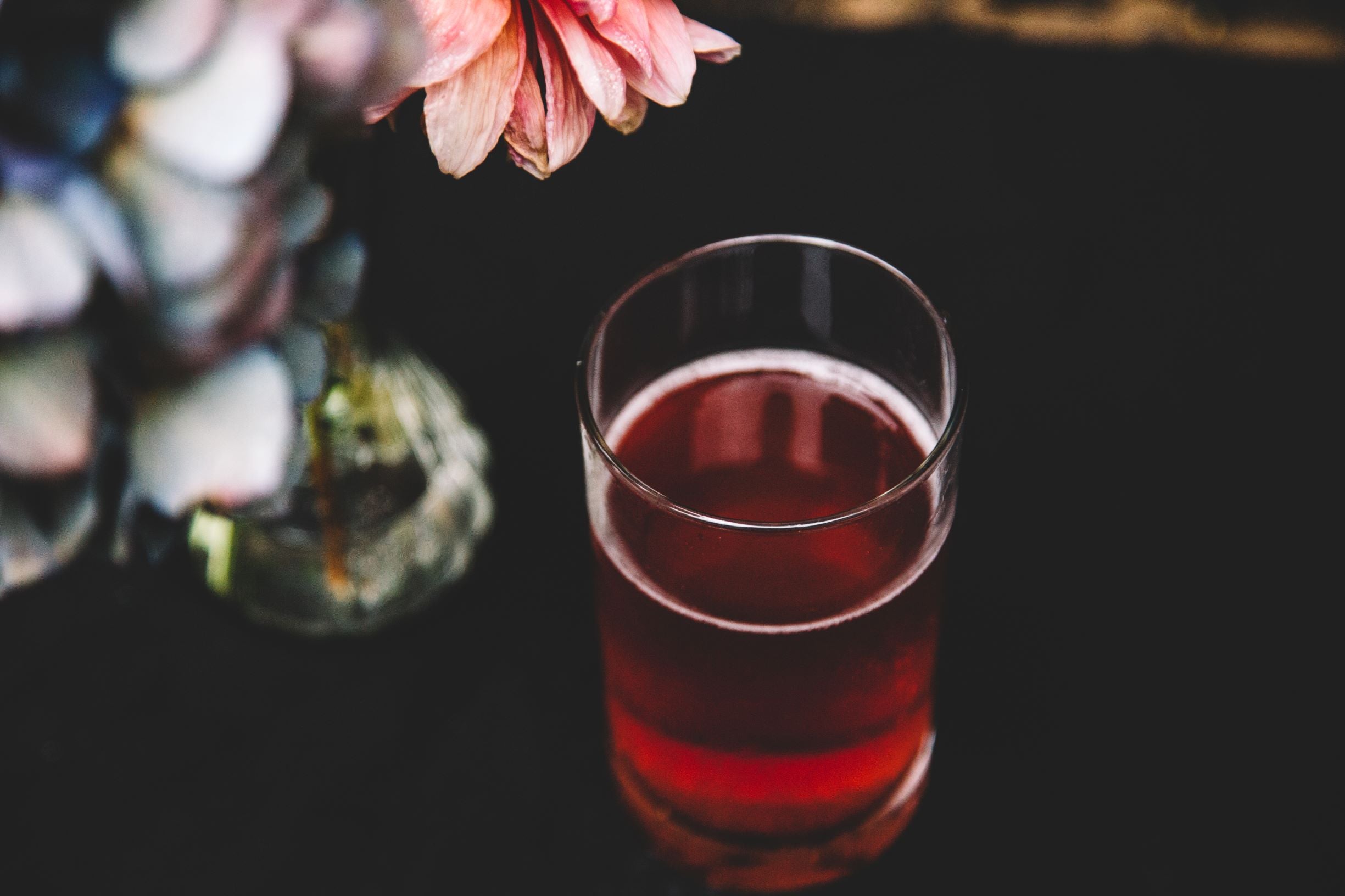
How to relieve mild eczema on face - and even rest of body
Figuring out how to relieve mild eczema on face - and even rest of body - can feel frustrating. You’ve tried many creams, bought too many products and adjusted diet to see what will make the biggest difference in dealing with this skin condition.
This is why we’ve put together this guide for you. Backed with scientific studies and personal transformation stories we’ve seen, this article will walk through:
- A clarification of exactly what eczema is (and WHAT causes it)
- The most common eczema symptoms
- What is triggering your eczema (the triggers may NOT be what you expect)
- A vitamin that is incredible for healing eczema
- The top essential oils we recommend for treating dry, irritated skin
That being said, let’s get started.
What is eczema?
Eczema is a term for a group of medical conditions that cause the skin to become inflamed or irritated. The most common type of eczema is known as atopic dermatitis, or atopic eczema. (Atopic is an umbrella term for a group of diseases with a tendency to develop other allergic conditions, like asthma and hay fever.)
While it’s easy to feel isolated with eczema, know this:
Eczema affects about 10% to 20% of infants.

About 3% of adults and children in the U.S are affected by eczema. While this single digit percent may sound small, there are over 320 million people in America, so even a “small” percent of the population is still millions of people.
If you have these symptoms still, know that with proper treatments, despite any ones that haven’t worked so far, there is a route to relief from eczema.
What are the symptoms of eczema?
Although you likely know these irritations too well already, here’s a quick check in on the two most common symptoms.
Itching
Eczema is almost always itchy. Sometimes the itching will start before the rash appears, but when it does, the rash most commonly appears on the face, back of the knees, wrists, hands, or feet. Other areas may be affected as well.
Dryness
The skin in affected will appear very dry, thickened, or scaly. In fair-skinned people, these areas may initially appear reddish and then turn brown. Among darker-skinned people, eczema can affect pigmentation, making the affected area lighter or darker.
[source]
The #1 eczema triggers
While you may be dealing with eczema already that you’d like to be healed or treated, let’s also touch base on the main triggers. The more awareness we can infuse into daily life, the more capable we are to avoid flare ups.
While eczema affects everyone differently, most people don’t experience the exact same triggers as anyone else, it’s important to know what could be triggering your skin. (And remember, time of year and seasons can be a contributor).
Skin becoming overly dry
If your skin gets too dry, it can easily become brittle, scaly, rough, or tight, which can lead to an eczema flare up. This is a reason winter months often trigger eczema for people. In colder months, it’s especially important to nourish and moisturize your skin.
Here’s the best way to moisturize your skin (sans chemicals)

Everyday household products
Many everyday products that are supposed to help your skin - increase irritation.
From common beauty creams and lotions in your home to things you use to clean your kitchen, here are some of the top common irritants to be aware of:
- Soaps and household cleaners
- Fragrances
- Certain fabrics such as wool and polyester
- Antibacterial ointment like neomycin and bacitracin
- Metals, in particular, nickel
- Formaldehyde, which is found in household disinfectants, some vaccines, glues and adhesives
- Cocamidopropyl betaine used to thicken shampoos and lotions
The best way to see if your skin is being exposed to these ingredients is to read labels on bottles. For household cleaners, wear gloves or even a face mask (like the ones doctors sport) to see if that helps.
Increased stress
The body is incredibly affected by emotions. When in periods of intense stress - whether at work, with family or other things in life - hard times often increase symptoms.
While this trigger can be trickier to handle, notice if you can add in little pauses of 3 deep inhales and exhales throughout the day or infuse little things you love to reduce stress, like music.

Sweating, especially in hot weather
It’s common to get that horrid ‘prickly heat’ sensation when too hot. This can happen in warm summer months, when it’s hard to fall asleep amid heat, or from working out. An essential way to tackle this issue is making sure your face is continually kept supple & nourished.
Infection
Bacteria or viruses can be affecting your skin, even when you don’t feel sick. These invaders (from cold sores to sneaky fungi, like athlete’s foot) can trigger symptoms. If there’s a flare up or skin condition that’s happening elsewhere in the body, know it can affect your eczema, too.
[source]
Why Vitamin C is your friend
Let’s get into what Vitamin C does for your skin, perk by perk.
Brightens skin
Especially as we age, one of the many joys of getting older is our skin’s changes. Our skin tends to shift in pigmentation with slight discolorations tending to appear on the face.
This is where Vitamin C comes into play. This vitamin acts as a natural toner, smoothing out the colors and providing a soothing, anti-inflammatory effect that’s effective yet (unlike chemical products) doesn’t have the more common side effects.
Acts as an anti-inflammatory
With a tendency to help heal inflammation, Vitamin C a true “thank goodness!” for skin. When eczema causes inflammation of skin, this vitamin helps to soothe it.
Fights age spots & acne
As wonderful it is to spend time in the sun, UV rays also contribute to intense skin issues like damage and, even, skin cnacer.
This is a powerful purpose of Vitamin C, which helps to fight that damage and repair it. This also makes Vitamin C a wonderful healer for acne, scarring and eczema.
Firms up skin
The best way to feel you had a fantastic weekend spa trip without the journey or expenses? A topical application Vitamin C, which helps the skin to replenish and plump up against lines, wrinkles and bumpy-ness caused by inflamed eczema.
To get more information, read the full story of Vitamin C and its benefits for skin
Other natural oils and ingredients to help sooth eczema
RoseHip oil

Derived from a rose bush, the fruit and seeds of the plant, this incredible oil has been deemed a wonder for how to heal eczema.
Moisturizes without clogging pores
While it’s important to keep skin hydrated when you have eczema, it’s also essential to only apply light ingredients that don’t trap skin. The skin must be allowed to breathe.
That’s why we love this insight from Dr. Fishman. “Rosehip oil is a fantastic moisturizer that does not break people out. It's good for all skin types, especially dry or rosacea-prone".
Evens out skin tone
Within rosehip seed oil is Vitamin A, a powerful Vitamin known to help heal scars, redness and smooth out skin tone.
Prime for boosting skin elasticity
When skin is dried out, it’s more prone to eczema. This can be air conditioning, change in weather or a number of other factors. Rosehip oil is a powerful ingredients for preventing the increased itching, flaking and over-oil production that can happen when skin is too dry.
Aloe Vera
Since ancient times, aloe vera has been used as a medicinal and healing plant.
Sap within this succulent is loaded with vitamins, minerals and other important elements. Upon breaking open the leaf of the plant, you’ll find the sap has:
- Vitamins A, B, C, D & E
- Antioxidants
- Potassium & Zinc
- Polysaccharides
- Anti-inflammatory properties
- Enzymes

The natural hydration and antioxidants of aloe make it vital for soothing skin, especially skin with eczema.
To learn more surprising benefits of aloe vera, check out our blog post.
Sunflower Seed Oil
Sunflowers, found only in America, are extracted from the confection seeds. When extracted, you get a safe mixture that is known for cooking but also is helpful for cosmetics and beauty.
The #1 benefit of sunflower seed oil? Anti-inflammatory
Within sunflower seed oil is a natural anti-inflammatory acid, known as Omega-6 acid. It’s praised for its ability to relax and heals the muscles - removing toxins and even relleasing stress. Learn more about how sunflower seed oil can revolutionize your skincare routine on our blog.
The best way to combine the best natural, eczema-healing ingredients
The key to maintaining a healthy balance of moisture & prevent irritation is to keep your skin hydrated with a high quality vegan moisturizer.

